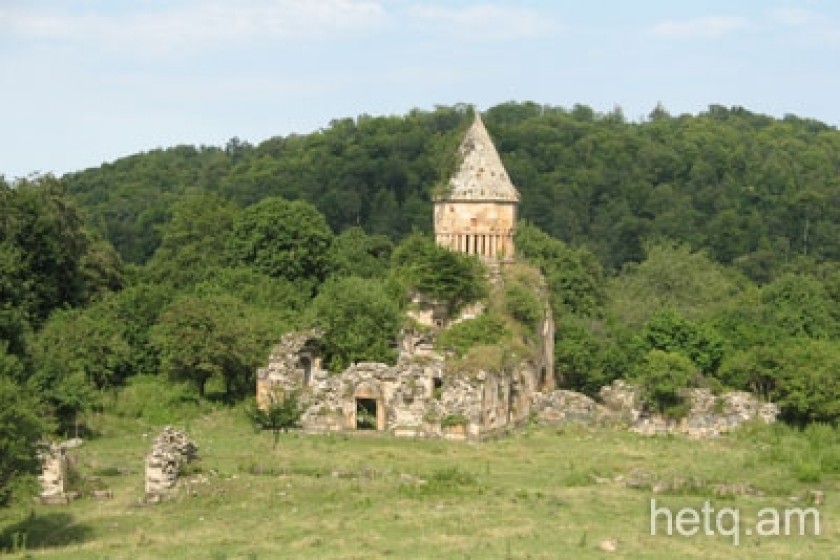
Georgian Border Guards Prohibit Djiliza Armenians from Visiting Khorakert Monastery
For the past three years, Armenians haven't been allowed to visit the 13th century Khorakert Monastery in neighboring Georgia. The border checkpoint between the two nations remains closed.
Khorakert lies some 6 km southwest of the village of Djiliza, situated in the northern Lori Marz of Armenia. When the borders were revised, the monastery found itself just a stone's throw on the other side of the border in Georgia. He border issue itself remains a sore point and open to debate.
"I say what's on my mind. You have to call the tiny population living in Djiliza heroes. We are totally cut off and neglected. It's not a question of making a living. It's a question of higher values," says Sousanna Tzatinyan, who teaches Armenian language and literature at the village school.
She's talking about a matter that is directly related to the border crossing and the fact that villagers can't get to the monastery now in Georgia.
Village Mayor Mher Vardanyan says Armenia is ready to open its portion of the checkpoint and that Georgia is holding things up.
He says the Georgians want to erect a barrier that will halt any ties between Armenians in Djiliza and their relatives across the border in the villages of Chanakhchi, Khozhorni, Opreti, Aghkyorpi, Tzob and others.
Because the local border crossing is closed, Armenians from Djiliza have to make the 100 km trip down to Alaverdi and then back up to Bagratashen in order to cross the border.
If the border crossing were open, residents of Djiliza could cross the border in a matter of minutes.
Georgia and Armenia share a land border of 225 km of which the majority is delineated through a joint delimitation-demarcation process but which remains a work in progress.
An inter-governmental delineation commission has been periodically working on the issue since 1996 but residents of Djiliza are in the dark as to the commission's findings.
To date, Georgian border guards continue to prohibit them from visiting Khorakert Monastery.
Mayor Vardanyan says that the local border is still under review.
"We'll have to wait and see whether the monastery will wind up in Armenia or in Georgia"
Sourik Tzatinyan is adamant that Khorakert belongs to Armenians and to the village of Djiliza specifically.
"The Georgian authorities must return the monastery to the rightful owners. It was built by Armenians on Armenian land. There's nothing more to say."
Mayor Vardanyan argues that tourism is the key to developing the village and refers to an organization in Greece called the "Friends of Karabakh and Armenia" that might assist in this regard.
"We have all these monuments and churches, not to mention our beautiful scenery," boasts the mayor.
Djiliza gets 2 million AMD in subsidies from the state government; the bulk of its overall 2.7 million annual budget.
Hetq wrote to the RA Ministry of Foreign Affairs to get the official position on the border issue.
In its response, the ministry said that according to Soviet maps the Khorakert Monastery was located on Soviet Georgian territory but that today this stretch of border has yet to be agreed upon by the two sides.
In fact, 65 km of the Armenian-Georgian border have yet to be officially delineated and agreed upon by Tbilisi and Yerevan.
The ministry says that it's this very stretch of border that remains "up for grabs".
 Videos
Videos Photos
Photos
Comments (2)
Write a comment